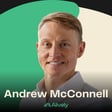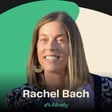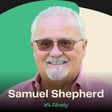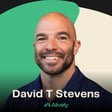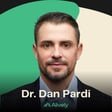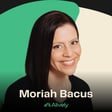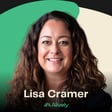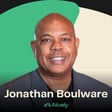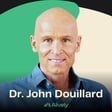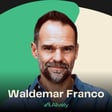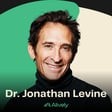
Release Emotional Baggage with Saahil Mehta - E55
We carry more than we realize: mental, emotional, and even physical baggage weighs us down as we strive for health and fulfillment. We can find ourselves investing energy in habits, routines, or beliefs that no longer serve us, leaving little room for vitality or joy. This isn’t new information, but the challenge is knowing how to let go of what’s unnecessary.
In this episode, learn how simplifying your “backpack” - in everything from nutrition to mindset - can help you move more efficiently toward your goals, making space for what truly matters and energizing every summit you climb.
Saahil Mehta is an entrepreneur, coach, author, and mountaineer known for helping individuals declutter their lives and optimize well-being. After a near-fatal car accident and ongoing health struggles, Saahil overhauled his lifestyle, prioritizing personal health, plant-based nutrition, and functional routines for peak performance. He is recognized for his work with business leaders and his Seven Summits framework, which encourages defining and striving toward holistic life goals. Saahil's practical approach to health and clarity has influenced international teams and audiences, blending lessons from his own business leadership and mountaineering pursuits.
“I'm going to do this because I'm going to make me a priority.” - Saahil Mehta
In this episode you will learn:
- Why Saahil believes identifying and removing “clutter” is key to personal growth, energy, and reaching your goals.
- How a wakeup call about hidden food intolerances and vitamin deficiencies transformed his health, productivity, and outlook on life, and the practical steps he took to recover.
- Saahil’s approach to nutrition as a lifelong plant-based eater, including insights from blood sugar tracking and the importance of lean muscle for healthy aging.
- The daily routines and stress management techniques he uses, from morning movement and meditation to “cup of time” breaks and mindful meal practices.
- Strategies for maintaining physical fitness throughout the day, including “walking pads” in the office, habit stacking, and training for purposeful challenges like mountaineering.
- The significance of defining your personal “seven summits” in life for clarity and fulfillment, and how cultivating strong social connections and clear priorities can keep you energized and at peace.
Resources
- Connect with Saahil on Instagram: https://www.instagram.com/saahilmehtaofficial/
- Find out all about Saahil’s offerings: https://www.saahilmehta.com/
- Buy Saahil’s book, ‘Break Free: A Guide To Decluttering Your Life’: https://www.amazon.com/Break-Free-Saahil-Mehta/dp/1922456209/ref=sr_1_1
This podcast was produced by the team at Zapods Podcast Agency:
https://www.zapods.com
Find the products, practices, and routines discussed on the Alively website:
https://alively.com/
